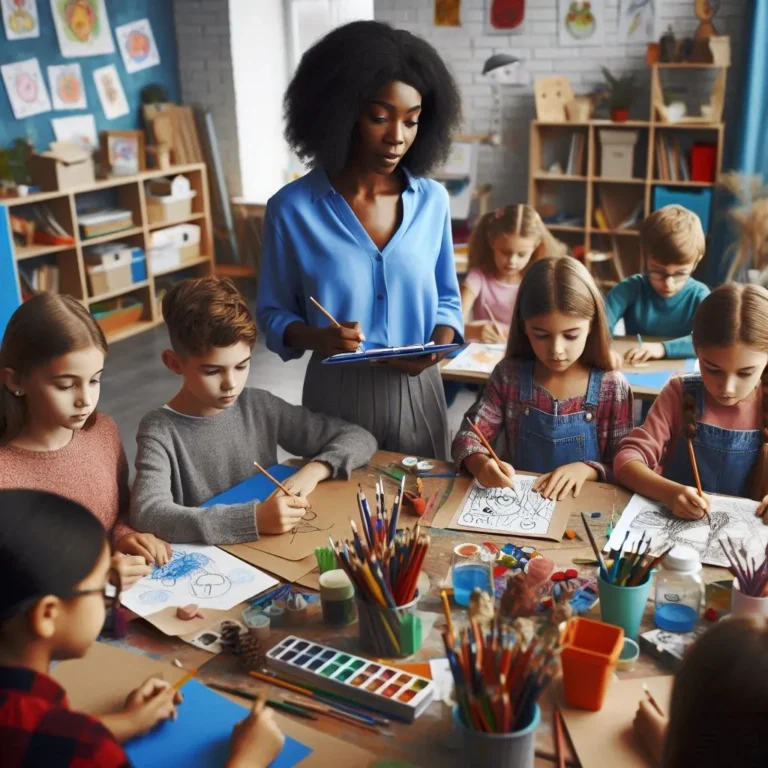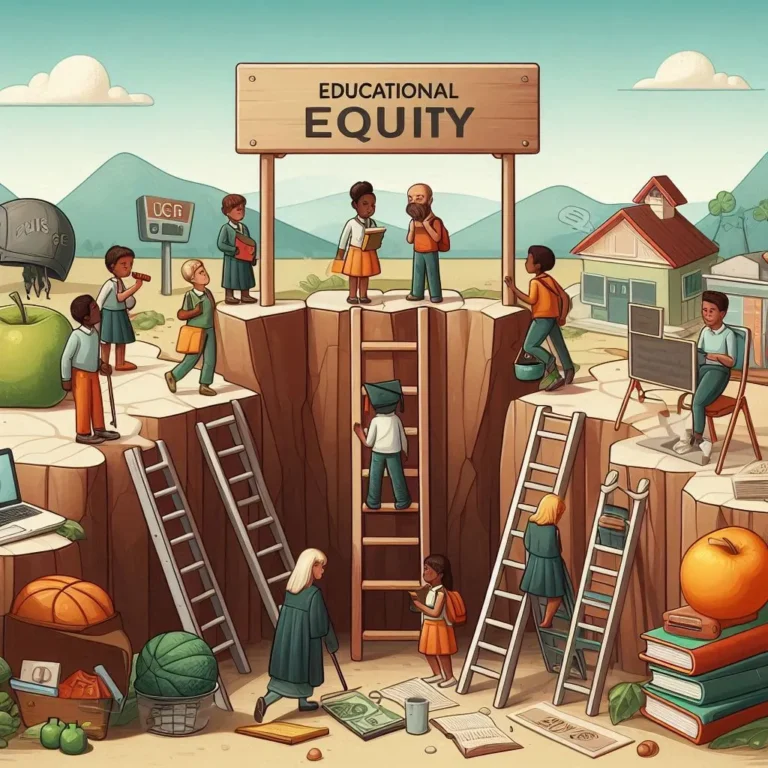Mentorship Programs – Influence on Student Success Beyond the Classroom 2025
Table of Contents
Mentorship Programs – Influence on Student Success
Mentorship programs are seen as game-changers in the rapidly evolving educational environment of today, giving students support beyond academics. Imagine a student who was not sure about what career path he wanted to pursue, and actually connected with the mentor that had gone through exactly this.
Then one day they see the fog lift, and a path appears that looks clearer than it ever did before. One way in which this happens is through mentorship programs, where students are paired with more mature individuals who can help them navigate hurdles both inside and outside the classroom. They help students discover their passion, sharpen the necessary skills for life and deliver custom advice which textbooks are not designed to do.
From demystifying the college application process to getting started in a career, mentors help students transform their dreams into real possibilities. Results of such programs are in an enhanced academic career, increased confidence amongst students and knowledge about the future objectives. It is not only that we pass the exams, but also learn to live. We live in a world that tends to relate education with marks, mentorship programs teach us how not only classroom is the place of success.

Think of a high-school er who was bad at match. You study for hours… and still it does NOT stick. That is where a mentor steps in — someone who knows their stuff inside and out, but even more importantly can explain it in that way where it just clicks. Over time, through regular sessions, the mentor discerns what learning style a student operates best in and adjusts their approach and teachings accordingly.
Over time, the student’s grades improve little by little; however the bigger picture is that they start loving match. This demonstrates the importance of mentorship in turning around a student’s perspective on learning. They need a reason to want it more than just barely passing. Often, these are a lot more personalised and closer to tutor style learning than many traditional classroom settings.
Mentors can use the results to address student-specific areas of strength and focus on individual challenges, thus ensuring that a learner not only understands content but also gains self-assureds in handling future obstacles. But the effects of such tailored attention can lead to much more than just increased performance in school — it awakens a joy of learning that stays with them.

Like Sarah, you hear the story of a first generation college student taking it all in and just getting adjusted to university life. She had all the educational capital to kill it in school, but none of this insider knowledge on how to navigate her way through an entirely new universe. Enter her mentor—a first-generation student, just like Homicidal who faced the same struggles and had some advice that was applicable in real-life. Sarah picked up networking, time management and coded lessons of college life sessions will simply avoid.
It also felt personal, because we had all come to Oxford for more than just studies; having a friendly face that I could go back and talk about my idea of imperial domination via colonisation without being criticised in the sense that the topic offends people unless it is presented by them ‘the right way’ (colonisers speaking) was comforting. However, for others such as Sarah (a pseudonym) mentorship programs meant the difference between being lost or feeling a true part of the college community.
Whether or not these programs are as successful in reality may be a matter of debate, but at their best they offer more than just academic advice; indeed the frame is broader and deeper — providing them with nurturing systems while giving a unified experience path to methodicalness例如. Mentors provide a dimension that is largely lacking in formal education, but which can distinguish both adaptability and mastery of the new environment for students.
Examples of where mentorship programs shine for career development For instance, let’s say you have John who is an engineering student and loves building autonomous robots. He was passionate about it but had no clue how he could make this interest of his into a job.

Next he was matched with a senior engineer who had worked on the best-of-the-best robotic systems in the field. He, too, was guided into human capital through mentorship from those who told John what skills he needed and which companies/ positions to target as well networking strategies that could get his foot in the door.
This advice he received was priceless, it took his interests from being a fantasy to more of a direction on where he could possibly go with career. Programs that cultivate career-focused mentorship opportunities, this concept gets students more intimately close to post-school work and provides them with titbits of insight most commonly missed or avoided through traditional academic settings.
Industry-specific know-how can be passed down from these mentors as they are able to share professional networks which might open new doors for the mentored student in unseen ways; further untangling how students actually make use (and apply) what study strategies have been picked up along the way is something also achievable within a successful mentoring program structure. A mentor possesses some distinct benefit that has shaped the students career path or future, when job markets are overcrowded a good established will give this stand out factor.
The lessons of mentoring do not just help the students mentored, they reverberate throughout our community. As students begin to succeed, they are more likely than ever in the past to contribute back and continue this cycle of positive change. Evidence of these benefits abound simply through the fact that, mentored youth are much more likely to enrol in college (55%) and 130% more apt to hold leadership positions.

This ripple effect is a reminder that mentorship doesn’t just alter destinies; it alters communities. Mentorship programs help to reinforce not only student success, but also a stronger more interconnected community on college campuses.
Those lessons are carried on with these students as they become professionals and leaders in their own right — many of whom, like their mentors before them, start mentoring others. Mentors keep giving, learning and receiving — it is a feedback loop of mentorship that ensures the ripple effect extends to far greater swathes of talent over time.
Finally, mentorship programs are not just an assist; they can be a lifesaver for those wading through the waters of academia and life post-graduation. Mentors offer personalised feedback, emotional support and real-world advice to help students overcome those hurdles by unlocking their potential. It could be doing better in school, adjusting to a new environment or preparing for a career — the influence of an effective mentor is invaluable.
The programs are symbiotic, assisting the students in addition to educating and benefiting both mentors as well as other members of society. In a system which judges success by grades and test scores, mentorship programmes serve as much needed constants to many: be true to your own path; and grow the strength (from those who support you). Mentors go a long way in helping students to do meaningful in their lives.

Drop me a note if you want to ask about bitty-grittiest or need more details on certain nuances in mentorship programs!!
FAQs
What is a mentorship program?
A mentorship program is a relationship between two people: one offers professional guidance and support to help the other along in their career. These training programs may be formal or informal, depending on the needs of employees (men-tees) and organisational context in which mentoring takes place. The aim is for the men-tee to learn skills, build confidence, and reach their goals.
Where do students get supported from mentorship?
Mentorship programs: Provide students with tailored support that runs deeper than classroom instruction. The students in turn gain exposure to their mentor’s knowledge and experience of academic subjects, career paths, and life skills. Mentorship can boost academic performance, improve decision making and help validate career choices. It also pave the way to have a professional network besides from being ready for what is come next, which means to start working.
Who can be a mentor?
Mentors are often teachers, experts in the relevant subject matter or former alumni. Mentors might also be upperclassmen who have faced similar experiences and challenges alike. The important thing is that a mentor has experience in the area you need coaching and is willing to put some time and effort into helping another develop. A good mentor is someone who listens to you and provides nice critique which encourages the men tee to make results by exploring their potential.
Q: How are mentors/men tees matched in a program?
There is a matching process where mentors and men tees are paired up together due to similar interests, goals or backgrounds. Some programs use questionnaires or interviews to determine if the mentor-men tee pairs are a good fit. A good match is important to avoid conflicts, as the mentorship relationship will only be fruitful and beneficial with a commitment from both sides.
Web-Based- Expands mentorship virtually through teleconference, emails•Types of Mentoring Programs
Different types of mentorship programs include;
Academic mentorship — geared toward better academic results and comprehension of certain subjectsросking to industry.
Career mentorship: Designed to help students establish careers as entrepreneurs and professionals.
Mentorship (peer) – This includes relationships where older or more experienced students teach, guide and counsels younger peers.
Group mentorship: when one mentor guides several men-tees at a time, most often in work-shop or group context.
Online: Virtual mentoring rather than one-to-one, allowing mentors and men tees from other parts of the world to connect.
- What is the frequency of meeting they should consider between a mentor and his or her men tee?
The mentor and men tee will meet as determined by the structure of the program or what your need is. This may be as often as once a week or every two weeks, but other programs have monthly sessions. Both mentors and men tees should agree on a cadence that works for them while encouraging frequent touch points.
Is it possible to manage mentorship programs virtually?
Virtual mentorship programs are possible. Virtual Mentorship: The Digital Revolution With technology advancing virtual mentor-ships is now easier to book than ever. Mentors and men tees are able to video call, email or message each other which provides ease of connectivity; particularly for those not in the same location.
What makes someone a good mentor?
Mentors should be ready to listen, empathise and help their men-tee succeed with a sincere will. Great mentors listen well, offer practical advise and are able to relate their own experiences with open ears in way that is applicable. Reliability and loyalty are equally important, as the men-tee will be depending on you for ongoing assistance.
How long will the mentorship program run?
Mentorship programs can take many shapes and forms in terms of structure, so the span depends on a specific program’s goals. Other programs are shorter and may take a few months (focused on a school year, specific project) Others may last a year or longer, particularly if they include work-oriented thought around development.
Do mentorship programs end up as relationships in the long way of living?
Absolutely! In fact, a lot of mentorship relationships naturally turn into lasting professional connections or even friendships. With the evolution of trust and mutual respect, mentors and men tees often end up reaching out to one another post program. By building these long-term relationships you ensure that both parties have an on going support network







